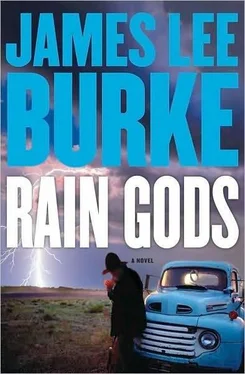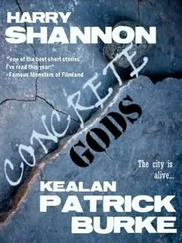“Me again. They were pulling each other’s hair in the dressing room.”
“The code guy was here. He says we have to put a third sink in. He says he found a dead mouse in the dishwasher drain, too.”
“Nick, there were a couple of guys in here last night I had trouble with. One guy had navy tats and a beard like a fire alarm. He said he was gonna be working for us. I kicked them out, but they said they’d be back. I thought maybe you needed a heads-up. Who is this asshole?”
“Hey, it’s me. There’s some flake on top of the toilet tank in the women’s can. I had Rabbit clean the shitters spotless early this morning. Farina was in there ten minutes ago. When she came out, she looked like she’d packed dry ice up her nose. Nick, babysitting crazy whores is not in my curriculum vitae. She wants your home number. You want me to give it to her? I can’t process these kinds of problems.”
Nick held down the delete button and erased every message on the machine, played and unplayed alike.
It was seventeen minutes to one o’clock. Hugo’s driver would be at the house at three P.M. to pick up the signed documents that would make Hugo Cistranos his business partner. The 25 percent ownership ceded to Hugo would of course be only the first step in the cannibalization of everything Nick owned. Nick sat in the darkness, his ears filled with a sound like wind blowing in a tunnel.
He had never confessed to anyone the fear he had felt in the schoolyard in the Ninth Ward. The black kids who took his lunch money from him, who shoved him down on the asphalt, seemed to target him and no one else as though they recognized both difference and weakness in him that they exorcised in themselves by degrading and forcing him to go hungry through the lunch hour and the rest of the afternoon, somehow freeing themselves of their own burden.
But why Nick? Because he was a Jew? Because his grandfather had adopted an Irish name? Because his parents took him to temple in a neighborhood full of simpletons who would later believe The Passion of the Christ was solid evidence that his people were guilty of deicide?
Maybe.
Or maybe they smelled fear on his skin the way a barracuda smells blood issuing from a wounded grouper.
Fear, the acronym for “fuck everything and run,” he thought sadly. That had been the history of his young life. And still was.
He punched his wife’s cell phone number into the console on his desk.
“Nick?” her voice said through the speakerphone.
“Where are you?” he said.
“Still at the mall. We’re about to have lunch.”
“Drop the kids at the country club and come home. We’ll pick them up later.”
“What is it? Don’t lie to me, either.”
“I need to show you where some things are.”
“What things? What are you talking about?”
“Come home, Esther.”
After he hung up, he wondered if his need was as naked as it sounded. He sat in a deep, stuffed leather chair and rested his forehead on his fingertips. It had been raining the night he met Esther twenty-three years ago. She was waiting for the streetcar under the steel colonnade at the corner of Canal and St. Charles Avenue, in front of the Pearl, where she worked as a night cashier after studying all day in the practical nursing program at UNO. There were raindrops in her hair, and in the neon glow of the restaurant’s windows, she made him think of a multicolored star in a constellation.
“There’s a storm blowing off Lake Pontchartrain. You shouldn’t be out here,” he had said to her.
“Who are you?” she replied.
“I’m Nick Dolan. You heard of me?”
“Yeah, you’re a gangster.”
“No, I’m not. I’m a gambler. I run a cardroom for Didoni Giacano.”
“That’s what I said. You’re a gangster.”
“I like ‘white-collar criminal’ better. Will you accept a ride from a white-collar criminal?”
She had on too much lipstick, and when she twisted her mouth into a button and fixed her eyes speculatively on Nick’s, his heart swelled in a way that made him take a deep breath.
“I live Uptown, just off Prytania, not far from the movie theater,” she said.
“That’s what I thought. You are definitely an Uptown lady,” he said. Then he remembered his car was in the shop and he had taken a cab to work. “I don’t exactly have my car with me. I’ll call a cab. Could I borrow a dime? I don’t have any coins.”
It was 1:26 P.M. when Nick heard Esther pull into the driveway and unlock the front door. “Where are you?” she called.
“In the office.”
“Why are you sitting in the dark?” she said.
“Did you lock the front?”
“I don’t remember. Did you go somewhere last night? Did you get into some trouble? I looked at the car. There’re no dents in it.”
“Sit down.”
“Is that a gun?” she said, her voice rising.
“I keep it in the desk. Esther, sit down. Please. Just listen to me. Everything we own is in this file case. It’s all alphabetized. We have a half-dozen equity accounts at Vanguard, tax-free stuff at Sit Mutuals, and two offshore accounts in the Cayman Islands. All the treasury bonds are short-term. Interest rates are in the dumps right now, but by next year gas prices will drive bonds down and rates up, and there’ll be some good buys out there.”
“I think you’re having a nervous breakdown.”
He got up from his chair and took both of her hands in his. “Sit down and listen to me like you’ve never listened before. No, no, don’t talk, just listen, Esther.”
She sat on the big square dark red leather footstool by the leather chair and watched his face. He sat back down, leaning forward, his gaze fixed on her shoes, his hands still clasping hers.
“I got involved with some evil men,” he said. “Not just lowlifes but guys that got no parameters.”
“Which guys?”
“One was a button man for the Giacanos. His name is Hugo Cistranos. He used to work for Artie Rooney. He’s for hire, on the edge of things. Hugo is kind of like a virus. Money has got germs on it. You do business, sometimes you pick up germs.”
“What’s this guy got to do with the restaurant or the nightclub?”
“Hugo did something really bad, something I didn’t think even Hugo would do.”
“What does that have to do with you?” she said, cutting him off, maybe too conveniently, maybe still not wanting to know how many pies Nick had a finger in.
“I tell you about it, you become a party to it. Hugo says it’s on me. He says I ordered him to do it. He’s trying to blackmail us. He might kill me, Esther.”
She was breathing faster, as though his words were using up the oxygen in the room. “This man Hugo is claiming he killed somebody on your orders?”
“More than one.”
“More than-”
“I have to deal with it this afternoon, Esther. By three o’clock.”
“Someone may kill you?”
“Maybe.”
“They’ll have to kill me, too.”
“No, this is the wrong way to think. You have to take the children to the river. Hugo has no reason to hurt you or them. We mustn’t give him any reason to do that.”
“Why does he want to kill you if he wants to blackmail you?”
“Because I’m not going to pay him anything.”
“What else are you planning, Nick?”
“I’m not sure.”
“I see it in your face. That’s why you have the gun.”
“Go to the river with the children.”
“They’ll have to walk in my blood to hurt our family. You understand that?” she said.
AT THREE P.M. sharp, Nick walked out to the curb and waited. His neighborhood was marbled with shadows from the rain clouds that had moved across the sun. A blue Chrysler came around the corner and approached him slowly, the tires clicking with gravel embedded in the treads, like the nails on a feral animal, the driver’s face obscured by a dark green reflection of trees on the windshield. The Chrysler pulled to the curb, and the driver, a man with a wild orange beard, put down the passenger window. “Howdy,” he said.
Читать дальше












